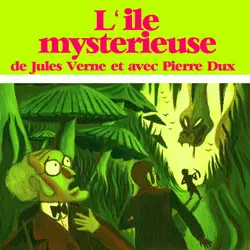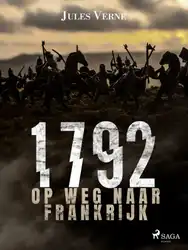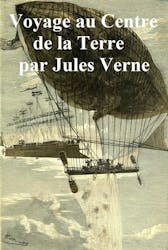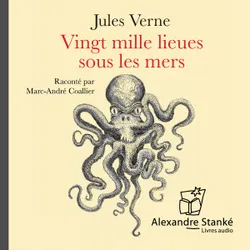The Ultimate SF Collection: 150 Classics is a monumental anthology that curates a groundbreaking journey through the evolution of science fiction. The collection showcases a remarkable diversity of literary styles, from the pioneering speculative visions of Mary Shelley and H.G. Wells to the sophisticated, genre-defining narratives of Philip K. Dick and Kurt Vonnegut. Encompassing a wide array of themes including dystopian futures, cosmic explorations, and technological marvels, this anthology not only pays homage to the canonical works that shaped the genre but also highlights lesser-known gems that have contributed to its rich tapestry. Each piece is carefully selected to represent the seminal and the speculative, offering readers a panoramic view of science fiction's literary landscape. The contributing authors of The Ultimate SF Collection: 150 Classics come from varied backgrounds, bringing together a montage of voices that reflect the genre's expansive and inclusive nature. This collection spans centuries, incorporating the early fantastical adventures of Jules Verne and the introspective, philosophical narratives of Ayn Rand, showcasing the breadth of socio-political and cultural contexts from which these stories spring. This amalgamation of authors not only highlights the genre's evolution over time but also its ability to transcend cultural boundaries and speak to universal human experiences. Collectively, their work aligns with significant historical, cultural, and literary movements, from early modernist explorations to the postmodernist reflections, together weaving a complex tapestry that enriches the reader's understanding of science fiction. For aficionados and novices alike, The Ultimate SF Collection: 150 Classics offers a unique opportunity to engage with the multifaceted world of science fiction literature. This anthology serves not just as a compendium of imaginative excellence but as a testament to the enduring power of speculative fiction to provoke thought, evoke emotions, and envision futures untold. Readers are invited to traverse this meticulously curated landscape of ideas, where each story opens a window to new worlds and possibilities, fostering a dialogue between the works and within the minds of those who embark on this literary expedition. The educational value, coupled with the sheer breadth of insights across different eras and ideologies, makes this collection an indispensable resource for anyone looking to understand the depth and diversity of the science fiction genre.
The Ultimate SF Collection: 150 Classics
Authors:
- Jules Verne
- Mark Twain
- Robert Louis Stevenson
- James Fenimore Cooper
- Edgar Allan Poe
- William Hope Hodgson
- George MacDonald
- Percy Greg
- Jack London
- Arthur Conan Doyle
- Edgar Rice Burroughs
- Ernest Bramah
- Jonathan Swift
- Cleveland Moffett
- William Morris
- Anthony Trollope
- Richard Jefferies
- William Dean Howells
- Ayn Rand
- Samuel Butler
- Milo Hastings
- David Lindsay
- Edward Everett Hale
- John Jacob Astor
- Edward Bellamy
- Andre Norton
- Murray Leinster
- H. Beam Piper
- Lester Del Rey
- Charlotte Perkins Gilman
- Edgar Wallace
- Kurt Vonnegut
- Frederik Pohl
- Fritz Leiber
- Irving E. Cox
- Francis Bacon
- Philip Francis Nowlan
- Robert Cromie
- Philip K. Dick
- August Derleth
- Richard Stockham
- Abraham Merritt
- Ignatius Donnelly
- Owen Gregory
- H. G. Wells
- E. E. Smith
- Stanley G. Weinbaum
- E. M. Forster
- Fred M. White
- Garrett P. Serviss
- Henry Rider Haggard
- Mary Shelley
- Edward Bulwer-Lytton
- Rokeya Sakhawat Hossain
- Edwin Lester Arnold
- George Griffith
- C. J. Cutcliffe Hyne
- Edwin A. Abbott
- Arthur Dudley Vinton
- Gertrude Barrows Bennett
- Hugh Benson
- Margaret Cavendish
- Gustavus W. Pope
Format:
Duration:
- 16231 pages
Language:
English
Categories:

L'Île mystérieuse
Jules Verne
audiobookbook
1792 - Op weg naar Frankrijk
Jules Verne
book
De kinderen van kapitein Grant - Stille Zuidzee
Jules Verne
book
Reizen en lotgevallen van kapitein Hatteras - De Engelsen op de Noordpool
Jules Verne
book
De familie zonder naam - De opstand van 1837
Jules Verne
book
Vingt mille Lieues Sous Les Mers
Jules Verne
book
Voyage au centre de la Terre
Jules Verne
audiobookbook
Een leerschool voor Robinsons
Jules Verne
book
vingt-mille lieues sous les mers (version2)
Jules Verne
audiobook
Voyage au Centre de la Terre
Jules Verne
audiobookbook
Voyage au Centre de la Terre
Jules Verne
book
Vingt mille lieues sous les mers
Jules Verne
audiobookbook
- 1567 books
Jules Verne
Jules Verne (1828–1905) was a prolific French author whose writing about various innovations and technological advancements laid much of the foundation of modern science fiction. Verne’s love of travel and adventure, including his time spent sailing the seas, inspired several of his short stories and novels.
Read more - 1237 books
Mark Twain
Mark Twain, born Samuel Langhorne Clemens in 1835, left school at age 12. His career encompassed such varied occupations as printer, Mississippi riverboat pilot, journalist, travel writer, and publisher, which furnished him with a wide knowledge of humanity and the perfect grasp of local customs and speech manifested in his writing. It wasn't until The Adventures of Huckleberry Finn (1885), that he was recognized by the literary establishment as one of the greatest writers America would ever produce. Toward the end of his life, plagued by personal tragedy and financial failure, Twain grew more and more cynical and pessimistic. Though his fame continued to widen--Yale and Oxford awarded him honorary degrees--he spent his last years in gloom and desperation, but he lives on in American letters as "the Lincoln of our literature."
Read more - 783 books
Robert Louis Stevenson
Robert Lewis Balfour Stevenson was born on 13 November 1850, changing his second name to ‘Louis’ at the age of eighteen. He has always been loved and admired by countless readers and critics for ‘the excitement, the fierce joy, the delight in strangeness, the pleasure in deep and dark adventures’ found in his classic stories and, without doubt, he created some of the most horribly unforgettable characters in literature and, above all, Mr. Edward Hyde.
Read more - 298 books
James Fenimore Cooper
James Fenimore Cooper (1789–1851) was a prolific and popular nineteenth century American writer who wrote historical fiction of frontier and Native American life. He is best remembered for the Leatherstocking Tales, one of which was The Last of the Mohicans.
Read more - 1325 books
Edgar Allan Poe
Edgar Allan Poe (1809-1849) was an American writer, poet, and critic. Best known for his macabre prose work, including the short story “The Tell-Tale Heart,” his writing has influenced literature in the United States and around the world.
Read more - 1227 books
Jack London
Jack London (1876–1916) was a prolific American novelist and short story writer. His most notable works include White Fang, The Call of the Wild, and The Sea-Wolf. He was born in San Francisco, California.
Read more - 1736 books
Arthur Conan Doyle
Arthur Conan Doyle was a British writer and physician. He is the creator of the Sherlock Holmes character, writing his debut appearance in A Study in Scarlet. Doyle wrote notable books in the fantasy and science fiction genres, as well as plays, romances, poetry, non-fiction, and historical novels.
Read more - 360 books
Edgar Rice Burroughs
Edgar Rice Burroughs (1875–1950) is best known for his creation of Tarzan of the jungle and of the heroic John Carter who adventured on Mars, although he is also the author of many other novels in a range of genres.
Read more - 292 books
Jonathan Swift
Jonathan Swift was born of English descent in Dublin, Ireland in 1667. He went to school at Trinity College in Ireland, before moving to England at the age of 22. After a short stint in the Anglican Church, he began his career as a writer, satirizing religious, political, and educational institutions. He wrote in defense of the Irish people, especially in his A Modest Proposal, which made him a champion of his people. His most famous work is Gulliver’s Travels which was published anonymously in 1726.
Read more - 39 books
Kurt Vonnegut
Kurt Vonnegut was a master of contemporary American Literature. His black humor, satiric voice, and incomparable imagination first captured America's attention in The Siren's of Titan in 1959 and established him as ""a true artist"" with Cat's Cradle in 1963. He was, as Graham Greene has declared, ""one of the best living American writers.""
Read more - 106 books
Philip K. Dick
Over a writing career that spanned three decades, PHILIP K. DICK (1928–1982) published 36 science fiction novels and 121 short stories in which he explored the essence of what makes man human and the dangers of centralized power. Toward the end of his life, his work turned to deeply personal, metaphysical questions concerning the nature of God. Eleven novels and short stories have been adapted to film, notably Blade Runner (based on Do Androids Dream of Electric Sheep?), Total Recall, Minority Report, and A Scanner Darkly, as well as television's The Man in the High Castle. The recipient of critical acclaim and numerous awards throughout his career, including the Hugo and John W. Campbell awards, Dick was inducted into the Science Fiction Hall of Fame in 2005, and between 2007 and 2009, the Library of America published a selection of his novels in three volumes. His work has been translated into more than twenty-five languages.
Read more - 931 books
H. G. Wells
English author H. G. Wells is best known for his work in the science fiction genre. He was also a prolific writer in many other genres, including contemporary novels, history, politics, and social commentary, even writing textbooks and rules for war games. He was born on September 21, 1866, and died on August 13, 1946.
Read more - 504 books
Mary Shelley
Mary Shelley (1797–1851) was born to well-known parents: author and feminist Mary Wollstonecraft and philosopher William Godwin. When Mary was sixteen, she met the young poet Percy Bysshe Shelley, a devotee of her father’s teachings. In 1816, the two of them travelled to Geneva to stay with Lord Byron. One evening, while they shared ghost stories, Lord Byron proposed that they each write a ghost story of their own. Frankenstein was Mary’s contribution. Other works of hers include Mathilda, The Last Man, and The Fortunes of Perkin Warbeck.
Read more
